Twitter turns nine – but will it survive another nine years?
Once the hot start-up, is it now the next MySpace? On Twitter's ninth anniversary, many analysts are questioning its future
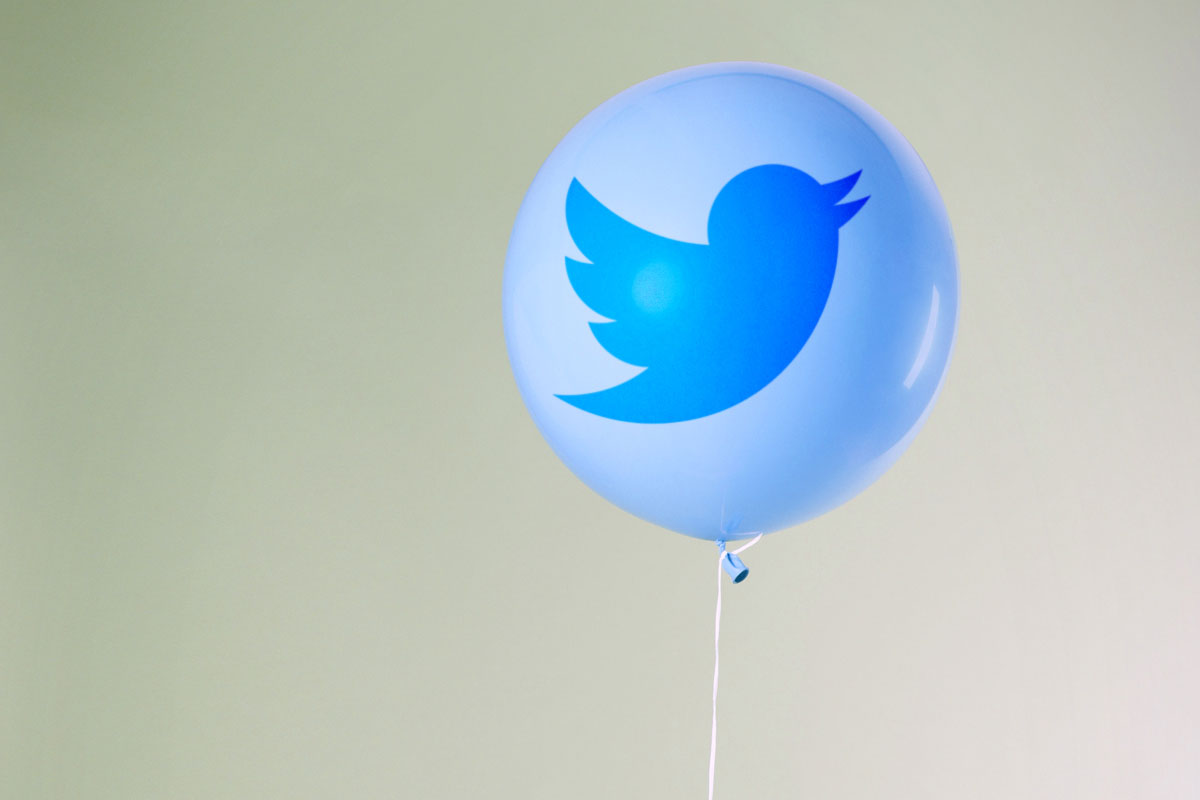
A free daily email with the biggest news stories of the day – and the best features from TheWeek.com
You are now subscribed
Your newsletter sign-up was successful
Twitter went live nine years ago today, ushering in a new era of social sharing. The micro-blogging service and its bright blue logo are now ubiquitous, but with a spluttering business model, withering user growth and declining stock value, some analysts are beginning to wonder how long the platform will survive.
What is Twitter?
The Week
Escape your echo chamber. Get the facts behind the news, plus analysis from multiple perspectives.

Sign up for The Week's Free Newsletters
From our morning news briefing to a weekly Good News Newsletter, get the best of The Week delivered directly to your inbox.
From our morning news briefing to a weekly Good News Newsletter, get the best of The Week delivered directly to your inbox.
The original concept of co-creator and current Chairman Jack Dorsey was a site where you could post (or "tweet") very short messages about what you were doing to your friends and anyone who wanted to subscribe to follow your updates.
The first tweet was made by Dorsey, several months before public users came on board. He said: "just setting up my twttr" (dropping vowels was cool back then).
Why was it invented?
Surprisingly, Twitter only came about as a peripheral communication project for a company hoping to create a world-beating podcasting application called Odeo.
A free daily email with the biggest news stories of the day – and the best features from TheWeek.com
By the time Odeo was side-lined (when podcasts were included in Apple's iTunes), Twitter was already up and running internally at the fledgling company. Twitter eventually opened its doors to the public on 15 July 2006, a day which arguably changed the way media was consumed forever.
Who uses it?
In nine years, Twitter has become one of the top ten most-visited websites in the world. With over 600 million registered accounts, of which 302 million are active monthly users, half a billion tweets are sent every day.
The top five accounts by followers, as of yesterday:
1. Katy Perry 72,342,333
2. Justin Beiber 65,241,340
3. Barack Obama 61,681,165
4. Taylor Swift 60,228,909
5. YouTube 52,899,661
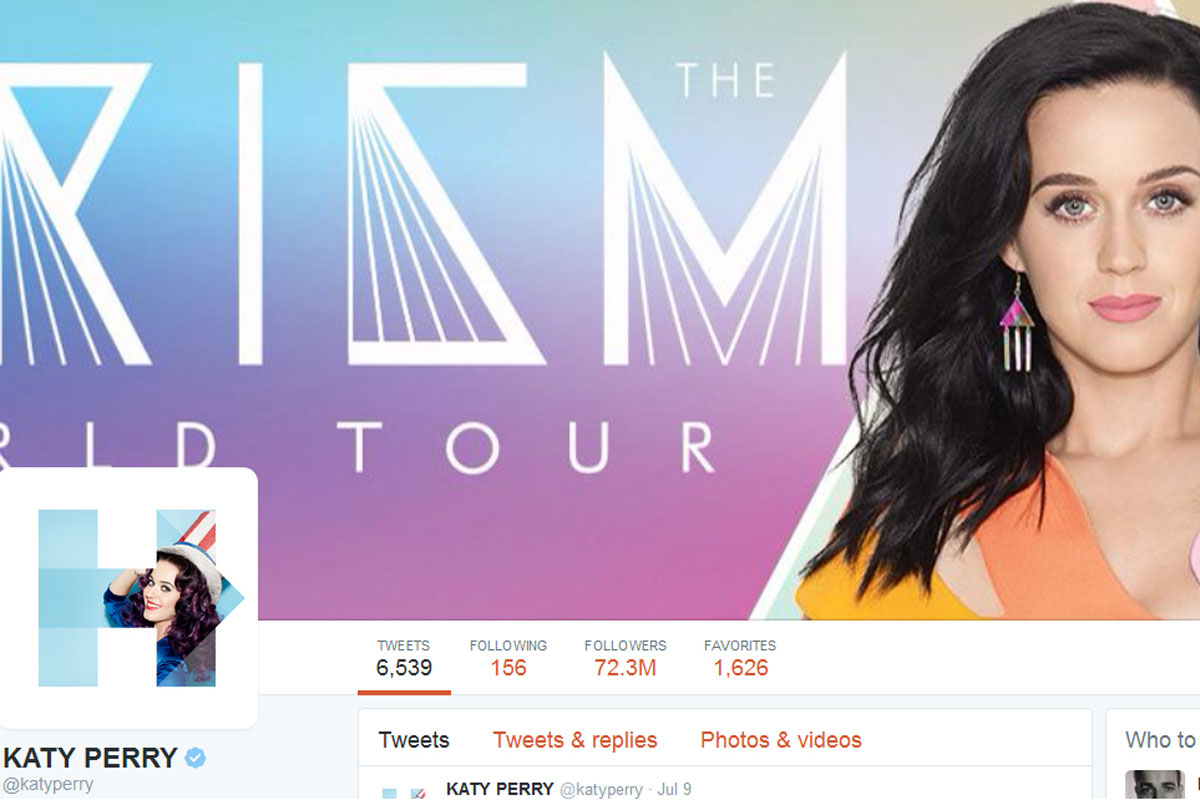
But today, the growth is Twitter's user base is falling. At the beginning of 2015 Twitter's quarterly growth fell behind Facebook for the first time in its history, hitting a record low of 1.4 per cent.
Why just 140 characters?
Each tweet can be up to 140 characters long, which may seem like an arbitrary figure, but was originally determined for a sensible reason. Twitter was first intended to be a service shared via text messages. A single text can contain up to 160 characters, and the 20 character wiggle room was included to allow usernames to be included in tweets.
Why do usernames start with the @ symbol?
In the early days, people had no way of replying directly to another user, so they copied the terminology of software engineers who used the @ symbol in front of their names as a means of identification. Twitter soon took that on board, allowing users to search through messages mentioning their Twitter name. Another user innovation was the grouping of discussions into "hashtags" by adding the # symbol at the beginning of a word – another short-hand borrowed from software engineers.
When did Twitter become popular?
Twitter experienced the most explosive growth in 2009 as a number of celebrities joined the service, including Ashton Kutcher in January and Katy Perry in February. Membership spiked soon after.
What was the first picture to be shared?
The first picture to be shared on Twitter, in February 2008, was a rather drab snap of the founder of TwitPic, Noah Everett

What was the most shared?
The most shared photo on Twitter was taken during the 2014 Oscars ceremony when a "selfie" taken by actor Bradley Cooper for host Ellen DeGeneres' account featuring a number of Hollywood stars (as well as Lupita Nyong'o's brother Peter) quickly became the most retweeted picture ever. It briefly caused the entire site to go down.
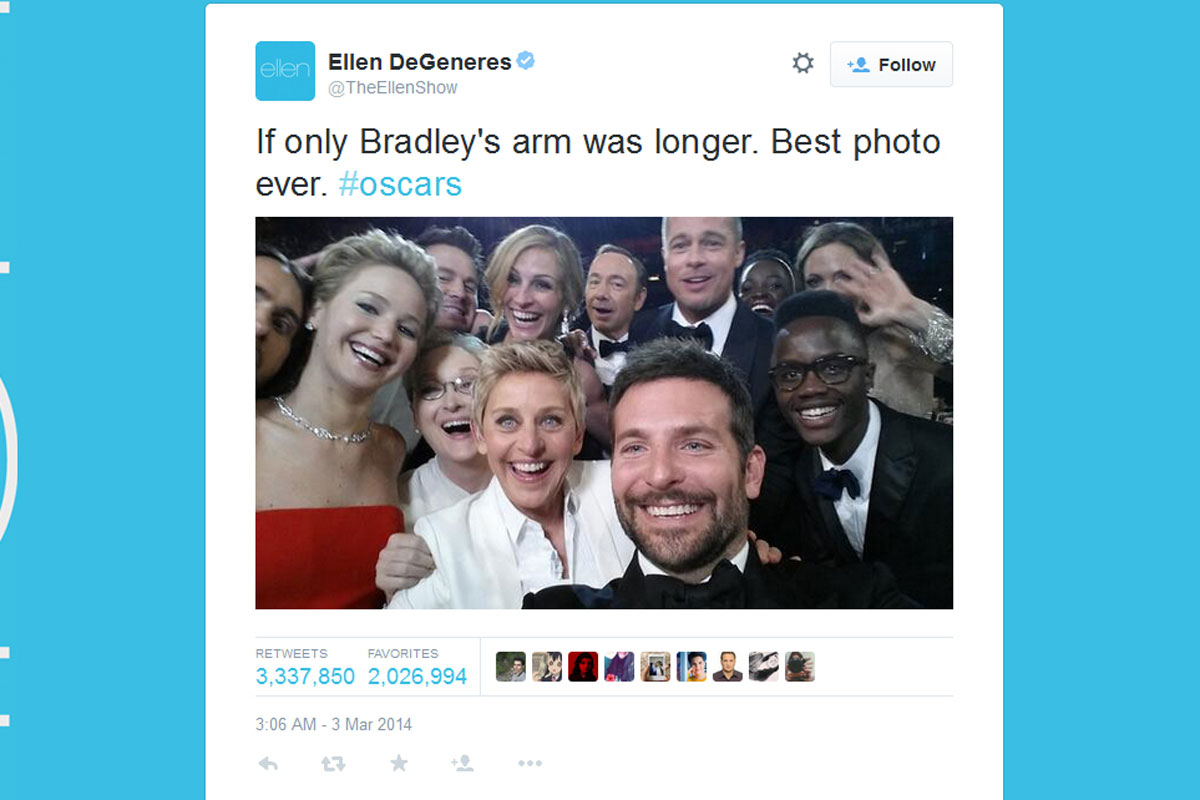
Has it had any more serious consequences?
In June 2009, the controversial announcement of the Iranian presidential election results lead to widespread rioting across the country. The unrest was dubbed "Iran's Twitter revolution" by the Washington Times due to the fact that hashtags on Twitter were used by Iranian protesters and the outside world to keep track of what was happening around the country.
Twitter was also said to play a critical role in the so-called Arab Spring in 2010 and 2011. Iran, China and North Korea have now banned Twitter outright (although the Iranian president, Hassan Rouhani, is an enthusiastic user).
What about closer to home?
In 2010 Paul Chambers was arrested and convicted under the Communications Act for the offence of sending a menacing message after joking on Twitter "Crap! Robin Hood airport is closed. You've got a week and a bit to get your sh** together otherwise I'm blowing the airport sky high!" when cold weather closed the airport ahead of his holiday. It took three High Court appeals and two years to quash the conviction.
Twitter has also seen a number of high-level arguments, including spats between Jeremy Clarkson and Piers Morgan, Alan Sugar and Donald Trump and Stephen Fry and the Blackberry corporation.
Former Twitter CEO Dick Costolo has admitted that bullying and abuse by trolls were problems for the company. In an internal memo earlier this year he wrote: "We suck at dealing with abuse and trolls on the platform and we've sucked at it for years."
Is Twitter in trouble?
In the last week of April, an early leak of Twitter's first-quarter results sent the company's stock into freefall. Twitter lost a quarter of its value in the space of a week sliding from a high of $51 on Monday 27 April to a low of $38 on Friday 1 May. " Twitter is not in immediate danger of joining MySpace in the social-media graveyard, but just being mentioned in the same sentence is not a good place to be," The Independent said.
The company's current problems don't end there. According to Wired, "users are abandoning the service, growth has been stagnant and social media pundits wonder if Twitter is heading toward irrelevance."
With usage falling, will Twitter still exist in another nine years? "It may not be too late to catch a new wave of users," Wired says, "but the window of opportunity is closing quickly."
-
 The Olympic timekeepers keeping the Games on track
The Olympic timekeepers keeping the Games on trackUnder the Radar Swiss watchmaking giant Omega has been at the finish line of every Olympic Games for nearly 100 years
-
 Will increasing tensions with Iran boil over into war?
Will increasing tensions with Iran boil over into war?Today’s Big Question President Donald Trump has recently been threatening the country
-
 Corruption: The spy sheikh and the president
Corruption: The spy sheikh and the presidentFeature Trump is at the center of another scandal
-
 Moltbook: The AI-only social network
Moltbook: The AI-only social networkFeature Bots interact on Moltbook like humans use Reddit
-
 Are Big Tech firms the new tobacco companies?
Are Big Tech firms the new tobacco companies?Today’s Big Question A trial will determine whether Meta and YouTube designed addictive products
-
 Is social media over?
Is social media over?Today’s Big Question We may look back on 2025 as the moment social media jumped the shark
-
 Australia’s teen social media ban takes effect
Australia’s teen social media ban takes effectSpeed Read Kids under age 16 are now barred from platforms including YouTube, TikTok, Instagram, Facebook, Snapchat and Reddit
-
 X update unveils foreign MAGA boosters
X update unveils foreign MAGA boostersSpeed Read The accounts were located in Russia and Nigeria, among other countries
-
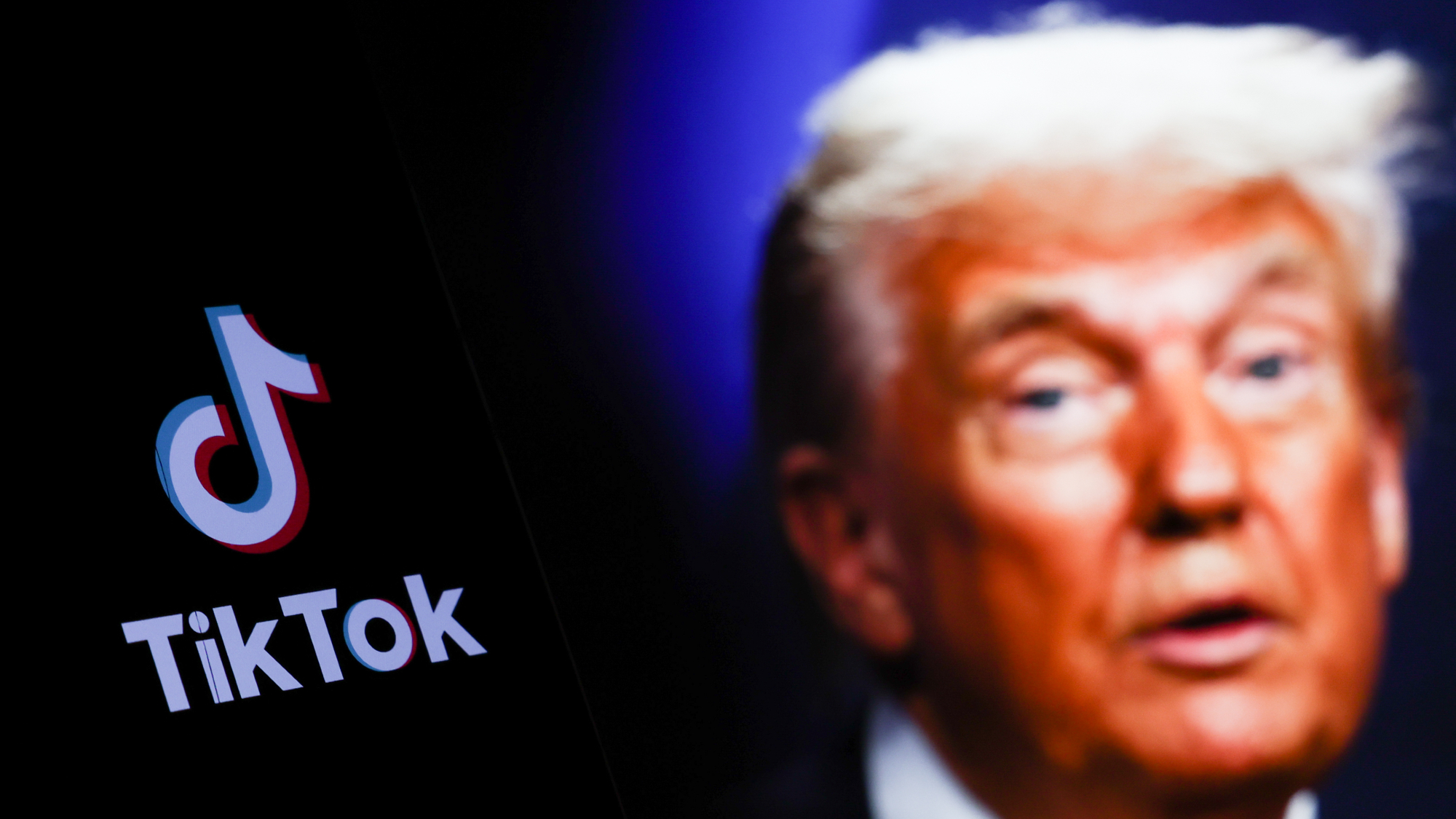 Trump allies reportedly poised to buy TikTok
Trump allies reportedly poised to buy TikTokSpeed Read Under the deal, U.S. companies would own about 80% of the company
-
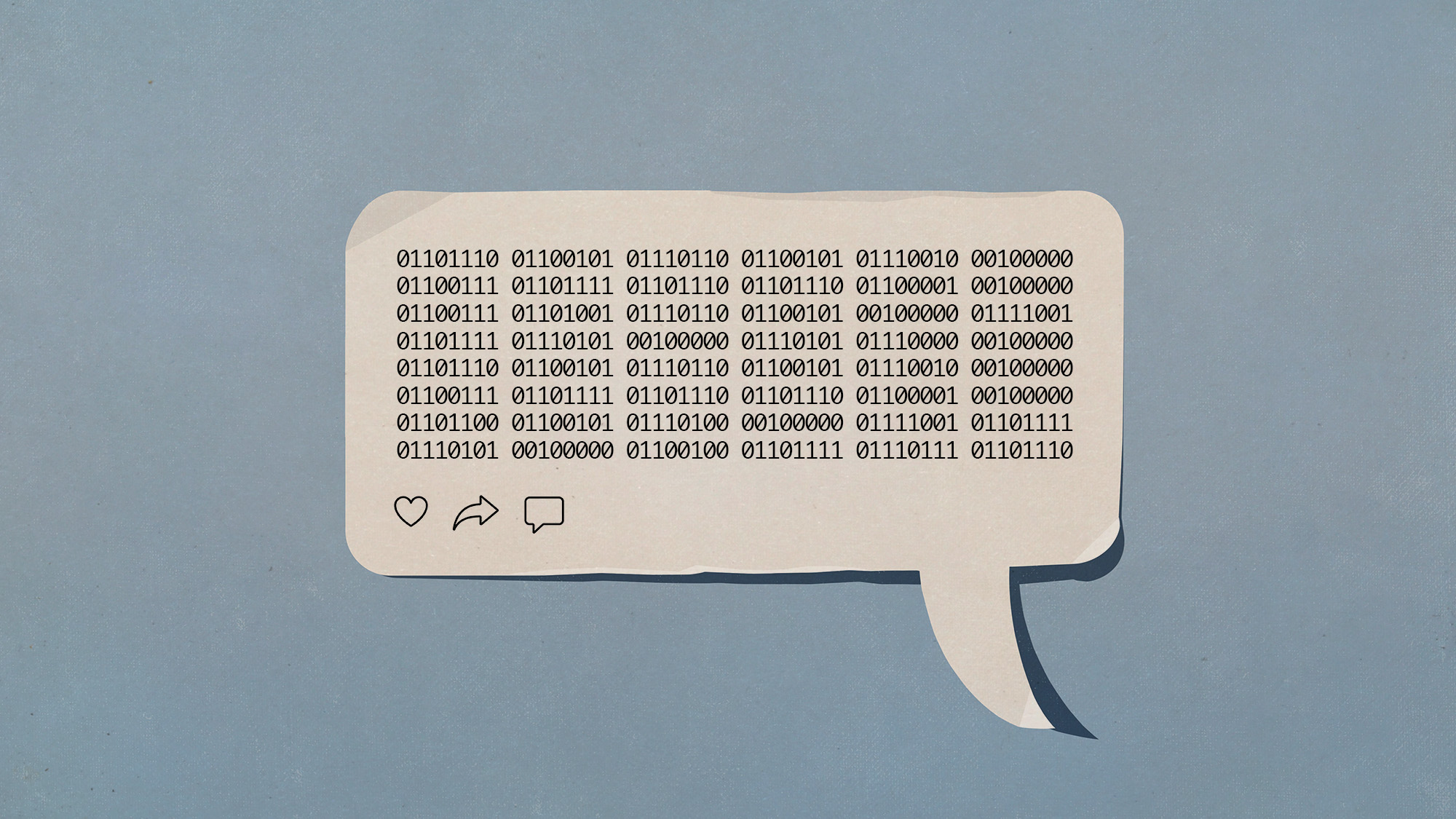 What an all-bot social network tells us about social media
What an all-bot social network tells us about social mediaUnder The Radar The experiment's findings 'didn't speak well of us'
-
 Broken brains: The social price of digital life
Broken brains: The social price of digital lifeFeature A new study shows that smartphones and streaming services may be fueling a sharp decline in responsibility and reliability in adults